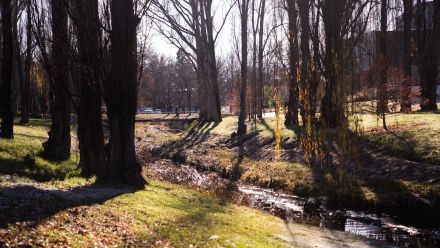Telling the stories of Australia's past
As historians, we see ourselves as writers. We trouble ourselves about the best way to tell a story.
Reaching out to diverse audiences through historical events has been an important part of Associate Professor Frank Bongiorno's career.
"History connects people. History provides an opportunity to reach out to non-specialised audiences, more than most other academic disciplines," he said.
"As historians, we see ourselves as writers. We trouble ourselves about the best way to tell a story."
Bongiorno specialises in Australian history, with a particular interest in political history, the labour movement and the politics of the 1980s. He is writing a book on the history of Australia between 1983 and 1991, the period of the Hawke Government.
"One of the reasons why I'm interested in the 1980s is that it's seen as the gold standard of political debate. One of the main points about political discourse in Australia now is that people say it's not as good as 25 or 30 years ago," he said.
"It's much harder now than it was in the 1980s to make major reform happen.
"There was a worry in the 1980s Australia would hit a major malaise, Argentina was the example used at the time.
"There's now a broader field of consensus between the parties, which makes major reforms harder."
After Bongiorno completed his PhD at ANU in 1994, he made the move into teaching. He has held a lecturing position at King's College London and in 1997 and 1998 was the Smuts Visiting Fellow in Commonwealth Studies at the University of Cambridge and Mellon Visiting Fellow at the University of Texas.
He is now in his third stint at ANU and teaches a number of history subjects.
"I enjoy tutes more than lectures these days. I enjoy the fun and interaction that you get from a group of students," he said.
"If you set engaging assessments, it's not boring marking 40 or 50 assignments. You can learn so much from the students. I find that it doesn't feel like work at all."
Meet more of our academics in world-ranked discipline areas: politics and international studies, forestry and agriculture and development studies.


